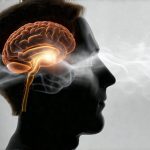The relationship between sleep and gut health is increasingly recognized as profoundly interconnected—far beyond simply feeling tired after a bad night. While many associate sleeplessness with mood swings, impaired cognitive function, or weakened immunity, the digestive system often takes a backseat in discussions about sleep deprivation’s impact. However, chronic disruptions to our natural sleep-wake cycle, or even just several days of significantly reduced or fragmented sleep, can dramatically alter gastrointestinal functions, frequently manifesting as loose stools, diarrhea, or other forms of digestive distress. This isn’t merely a coincidence; it’s a complex interplay between the nervous system, hormonal regulation, and the gut microbiome—all of which are heavily influenced by consistent, quality sleep.
The body operates on intricate rhythms known as circadian rhythms, controlled by an internal biological clock that regulates numerous physiological processes, including digestion. Sleep deprivation throws this delicate balance into disarray. This disruption can lead to changes in gut motility (the movement of food through the digestive tract), altered intestinal permeability (“leaky gut”), and shifts in the composition of our gut bacteria. Consequently, even a short period of sleep loss can compromise the digestive system’s ability to efficiently process food, leading to discomfort and symptoms like loose bowels. Recognizing this connection is crucial for prioritizing both sleep hygiene and understanding why your gut reacts negatively when you consistently skimp on rest. You might find it helpful to explore what to eat on busy days, too.
The Gut-Brain Axis and Sleep’s Influence
The gastrointestinal tract isn’t an isolated system; it’s intimately connected to the brain via what’s known as the gut-brain axis. This bidirectional communication pathway means that signals travel in both directions – from the gut to the brain, influencing mood and cognitive function, and from the brain to the gut, affecting digestion and immune responses. Sleep deprivation significantly impacts this crucial connection. When you don’t sleep well, stress hormones like cortisol are elevated. Chronic elevation of cortisol can disrupt the delicate balance within the gut microbiome, favoring the growth of potentially harmful bacteria and suppressing beneficial ones.
This imbalance isn’t just a matter of bacterial counts; it affects the function of the gut. For example, reduced sleep has been linked to decreased production of short-chain fatty acids (SCFAs) by certain gut bacteria. SCFAs are vital for maintaining gut barrier integrity and reducing inflammation. A weakened gut barrier allows undigested food particles and toxins to leak into the bloodstream, potentially triggering an immune response and exacerbating digestive symptoms. Moreover, sleep loss can alter intestinal motility—speeding up digestion in some cases, leading to loose stools, or slowing it down in others, contributing to constipation.
The influence extends beyond hormonal changes. Sleep also impacts the vagus nerve – a major communication channel between the gut and brain. Disrupted sleep can impair vagal tone (the activity of the vagus nerve), further compromising gut-brain signaling and potentially leading to digestive issues. Essentially, lack of sleep creates a cascade of events that negatively affect the entire digestive process. Understanding how your gut test results can impact sleep quality is also important.
Hormonal Shifts & Digestive Function
Sleep is when our bodies actively regulate hormones critical for digestion and overall health. Several key hormonal changes occur during periods of sleep loss that directly contribute to gastrointestinal distress. One significant hormone impacted by sleep deprivation is ghrelin, often referred to as the “hunger hormone.” Ghrelin stimulates appetite, and its levels typically decrease overnight when we’re asleep. However, lack of sleep causes ghrelin levels to remain elevated, potentially leading to increased cravings for unhealthy foods that can further irritate the digestive system.
Simultaneously, leptin, a hormone that signals fullness, is suppressed during sleep deprivation. This combination of high ghrelin and low leptin contributes to overeating and poor dietary choices, putting additional stress on the gut. Furthermore, cortisol—the stress hormone—remains elevated with insufficient sleep. As mentioned previously, chronic cortisol elevation can disrupt the microbiome and increase intestinal permeability. Another hormone affected is secretin, which stimulates pancreatic secretion; disruptions in its release due to sleep loss can affect how efficiently food is broken down. This complex hormonal interplay highlights why even a few nights of poor sleep can significantly impact digestive function. Consider functional gut tests you can do without a clinic if you suspect an imbalance.
Identifying Contributing Factors Beyond Sleep
While sleep deprivation itself is often the primary trigger for loose bowels, it’s important to consider other contributing factors that might exacerbate the issue or be mistaken as the sole cause. – Food sensitivities: Undiagnosed food intolerances or allergies can become more apparent when the gut is already compromised by sleep loss. – Stress: Emotional stress and anxiety amplify the effects of sleep deprivation on the gut-brain axis, creating a vicious cycle. – Dehydration: Insufficient water intake can worsen digestive symptoms and contribute to loose stools.
It’s crucial to differentiate between temporary digestive upset due to sleep loss and underlying gastrointestinal conditions like Irritable Bowel Syndrome (IBS) or Inflammatory Bowel Disease (IBD). If loose bowels persist even after improving sleep habits, seeking medical evaluation is essential. Keeping a food diary and tracking symptoms alongside sleep patterns can help identify potential triggers and determine whether the issue is solely related to sleep loss or requires further investigation. Screening for gut inflammation without scoping may also be useful.
Strategies for Improving Sleep & Gut Health
Addressing the root cause – lack of sleep – is paramount. Implementing consistent sleep hygiene practices can significantly improve both sleep quality and digestive function. This includes:
1. Establishing a regular sleep schedule, even on weekends.
2. Creating a relaxing bedtime routine (e.g., warm bath, reading).
3. Optimizing the sleep environment (dark, quiet, cool).
4. Avoiding caffeine and alcohol before bed.
Beyond sleep hygiene, dietary modifications can also support gut health: – Probiotic-rich foods: Incorporating fermented foods like yogurt, kefir, sauerkraut, or kimchi can help restore a healthy microbiome. – Prebiotic-rich foods: Foods like garlic, onions, asparagus, and bananas provide nourishment for beneficial gut bacteria. – Fiber intake: Adequate fiber intake promotes regular bowel movements and supports overall digestive health. – Hydration: Drinking sufficient water is essential for proper digestion and preventing constipation. It’s important to understand options for monitoring slow motility too.
When to Seek Medical Advice
It’s important to remember that occasional loose stools following a period of sleep loss are often temporary and resolve on their own with improved sleep habits. However, certain symptoms warrant medical attention: – Persistent diarrhea lasting more than a few days. – Severe abdominal pain or cramping. – Blood in the stool. – Fever. – Signs of dehydration (e.g., dizziness, dark urine).
These could indicate an underlying gastrointestinal infection or condition that requires diagnosis and treatment. While this article explores the link between sleep and digestive health, it is not a substitute for professional medical advice. If you have concerns about your digestive health or are experiencing persistent symptoms, consult with a healthcare provider to determine the appropriate course of action. Focusing on consistent sleep patterns, mindful dietary choices, and stress management can significantly improve both gut health and overall well-being. Why some people need GI mapping is also something to consider if symptoms persist.


















